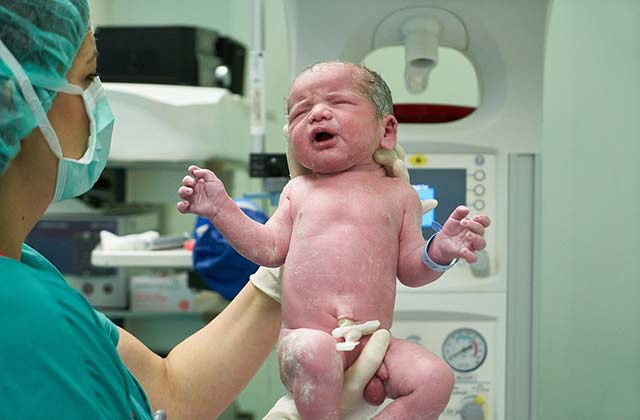No two babies are the same. But what is common to them is their inclination to cry. And yes, they can cry a lot and there is no getting around it. Crying is how babies primarily communicate whenever they are hungry, in pain, afraid, sleepy, and more.
It is usually the instinct of parents to calm the crying baby down since hearing their baby cry is hard for parents. And the best way to comfort a crying baby is to first know what prompts them to cry; from there, the baby’s needs can be appropriately addressed. But how can a parent exactly know what the baby is trying to communicate? Here are some usual reasons why babies cry.
1. Your baby is hungry.
Hunger is among the most common reasons why babies cry. They usually cry when they have not eaten for a while. It is a given that babies become hungry quickly since they have small stomachs that cannot hold very much. Thus, in just a few bits, your baby needs another feed.
The key with responsible feeding is to respond to your baby’s signals instead of watching the clock or waiting for them to cry. Your baby’s cry is usually a late indication of hunger. To avoid them from crying due to hunger, be acquainted with early signs that they are up for another feed such as sucking on their hands and lip-smacking.
2. Your baby may have colic.
Your baby may have colic if he cries excessively even though he is healthy. But it is not clear as to what exactly causes your baby’s persistent crying. It is so typical in babies that many think colic is part of a regular stage of development and that babies are not necessarily in pain or feel discomfort. Others think that colic could be linked to tummy problems, wind, reflux, or constipation due to feeding. Regardless of the cause, caring for a baby who cries and is difficult to be comforted will surely give you stress.
According to the American Academy of Pediatrics, colic is a condition wherein an otherwise healthy baby would cry for longer than three hours in a day, beyond three days in a week, and for more than three weeks in succession. Colic, however, will pass and is usually short-lived. Though it typically peaks at two months, colic tends to end in the third or fourth months.
3. Your baby needs sleep.
Babies may grumble and cry especially when they are tired out. But they do not simply go asleep since it is harder for them to do so than we think they could. Remember that for babies, sleeping is a skill to be learned just like any other.
A crying baby is incapable of soothing himself on his own, thus, parents must try to discover what calms their overtired baby. Some babies readily respond to a lullaby, swaddling, rocking motion, or even the sound of a vacuum cleaner. Whatever means that you can come up with, always remember that a sleepy baby should be allowed to sleep.
4. Your baby starts teething.
Teething can be painful to your baby since each growing tooth will push through your baby’s tender gums. So if your baby is in pain and you do not know for sure what caused it, try checking his gums using your finger and look for a hard nub of a surfacing baby tooth. Usually, the first tooth will appear between the fourth and the seventh months, though it can emerge earlier.
It is typical for babies to be irascible and anxious a week before the appearance of their new tooth. And their sufferings vary from one baby to another. Certainly, when the pain begins, a small increase in your baby’s crying can be observed. You may also notice as a sign of teething that your baby excessively drools and gnaws whatever things he gets hold of. You can help calm your crying baby by letting him suck the pacifier or his thumb, giving him a gum massage, or allowing him to chew on frozen teethers, cotton bibs, or washcloths.
5.Your baby has an illness.
When the basic needs of your baby are met and you have already comforted your crying baby to no avail, he could be dealing with something else. Your baby may have an illness.
Parents certainly would not want their babies to get sick. When your baby is feeling ill, it is readily observable that his cries are more frequent than normal. And you may take it as a sign of illness when your little one would not stop crying or if he cries harder and longer than usual. Other symptoms to watch for are vomiting, fever, insufficient weight gain, not being alert, or if he is comfortless.
Almost always, the crying of a sick baby is different from that which is due to being hungry or annoyed. When your baby’s crying still seems not right after doing the basics to soothe him, you should trust your intuition and see a doctor for consultation. Better visit a virtual walk-in clinic Calgary for professional intervention.
It is just normal for babies to cry for either obvious or obscure reasons. However, as a parent, you can always find ways to comfort your crying baby. If you could not, remember not to blame yourself. You did not cause it. Just make sure that your baby’s basic needs are met and you have tried everything to soothe him. Perhaps, it is time to take a step back and let other people help, whether a family member, friend or medical professional. As with all things, this matter will also pass.

